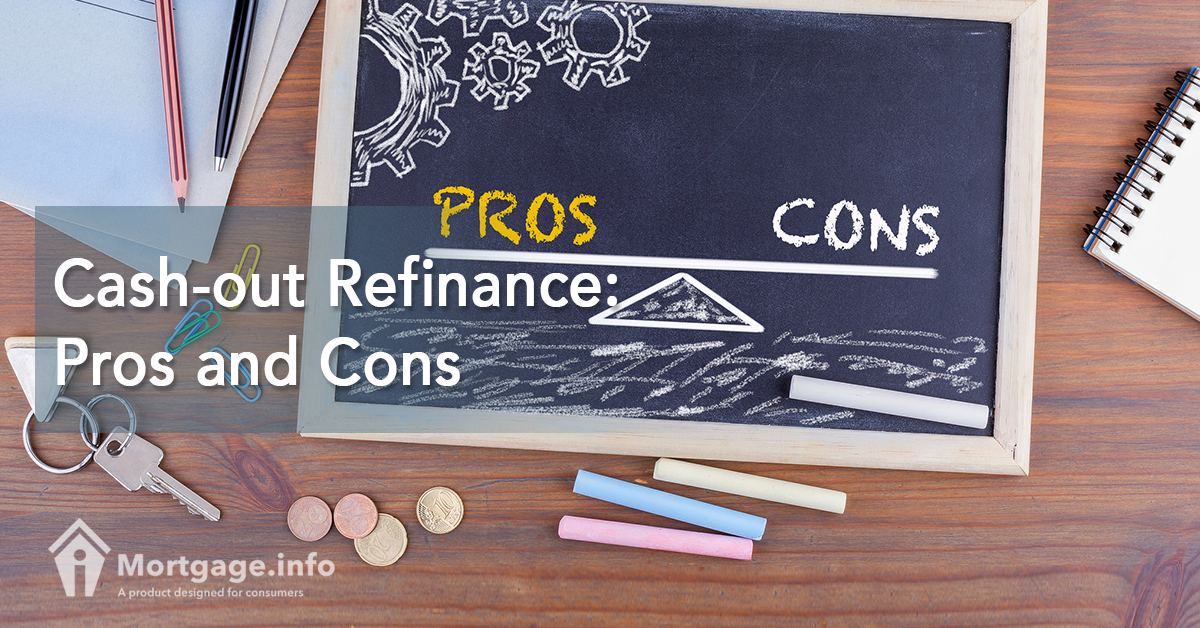Tapping into your home’s equity and taking it out as cash can be tempting when home prices have gone up and you’re confidently above water on your mortgage. But in today’s rising interest rate climate, should you?
What is cash-out refinance?
Cash-out refinance, as the name suggests, is a type of refinancing where you renew your mortgage terms to take out more than your current balance and keep the difference between the original and new loans as cash.
There is no limit or restriction as to how you’re going to use the money you take out from your equity. That is why when the timing is right, many borrowers take the opportunity to use this money to fund their personal expenses from buying a new car to paying off debts, among many others.
Unfortunately, cash-out refinancing is not for everyone, not unless the time is right. There are various factors that need to be considered first before going ahead with such a decision. In this article, we will discuss the pros and cons of cashing out so you can arrive at a sound decision on whether or not to cash out on your home’s equity.
Cash-out Refinance: Pros and Cons
PROS
Pays for major expenses.The cash you take out from this refinance can help you pay off some of your major expenses such as your child’s education, fund some important home improvements, or consolidate debts. This is one of the major reasons why most borrowers cash-out. Its rates are also usually more attractive compared to most unsecured personal loans.
Improves credit.Yes. Moving your credit card debts to your mortgage is possible (for the purpose of getting a lower rate) and can be considered as a cash-out refinance. You can use part of the equity to pay down the tax-deductible debt first. This strategic use of cash-out refinancing can help you build better credit when done right.
Gives you access to stable rates.Many borrowers consider the fixed-rate interest as more preferable than the adjustable interest rate offers of home equity lines of credit.
CONS
Higher rates.Cash-out refinances normally come with higher interest rates, even when your credit is excellent. Be prepared to pay a little extra when you decide to refinance using this option.
Slow and costly.You will take the same steps as your original mortgage process so take the initiative of preparing and forwarding the necessary documents for processing. Closing costs can be hefty. Talk to your lender or loan officer about the details of closing fees and charges.
Risky.Taking out cash from your equity and renewing your loan terms back to square one puts you in a risk of being underwater when home prices go down. That is why it is important to examine market conditions and patterns first before diving into the cash-out option.
Need financial experts? Find one today!
A Closer Look
Knowing the aforementioned benefits and disadvantages, you will be in a better position to evaluate your decision. Take a step-by-step assessment of not only your needs but also the varying external factors that may affect your cash-out refinance:
Guard your low rates.If you got your original mortgage on historic-low levels, it might be unwise to refinancein a progressively-hiking interest climate. Weigh your options properly and make sure whatever the return is worth the risk.
Consider how resetting your interest payment term affects your financial situation.For example, you have gone five years into your mortgage before you decided to cash-out refinance. Refinancing means rebooting the whole process, forfeiting the five years worth of payments.
Look at the cost.Consider the refi cost. Are you willing to pay thousands of dollars on origination, and standard loan fees to get this cash? Does the purpose of your cash-out money outweigh the risk of taking it out? It’s quick money, but it’s also easy to forget the price you need to pay for it in the long run.
Talk to a professional.If you are unsure, get help from the experts. Talk to us about your cash-out refinance plans.

